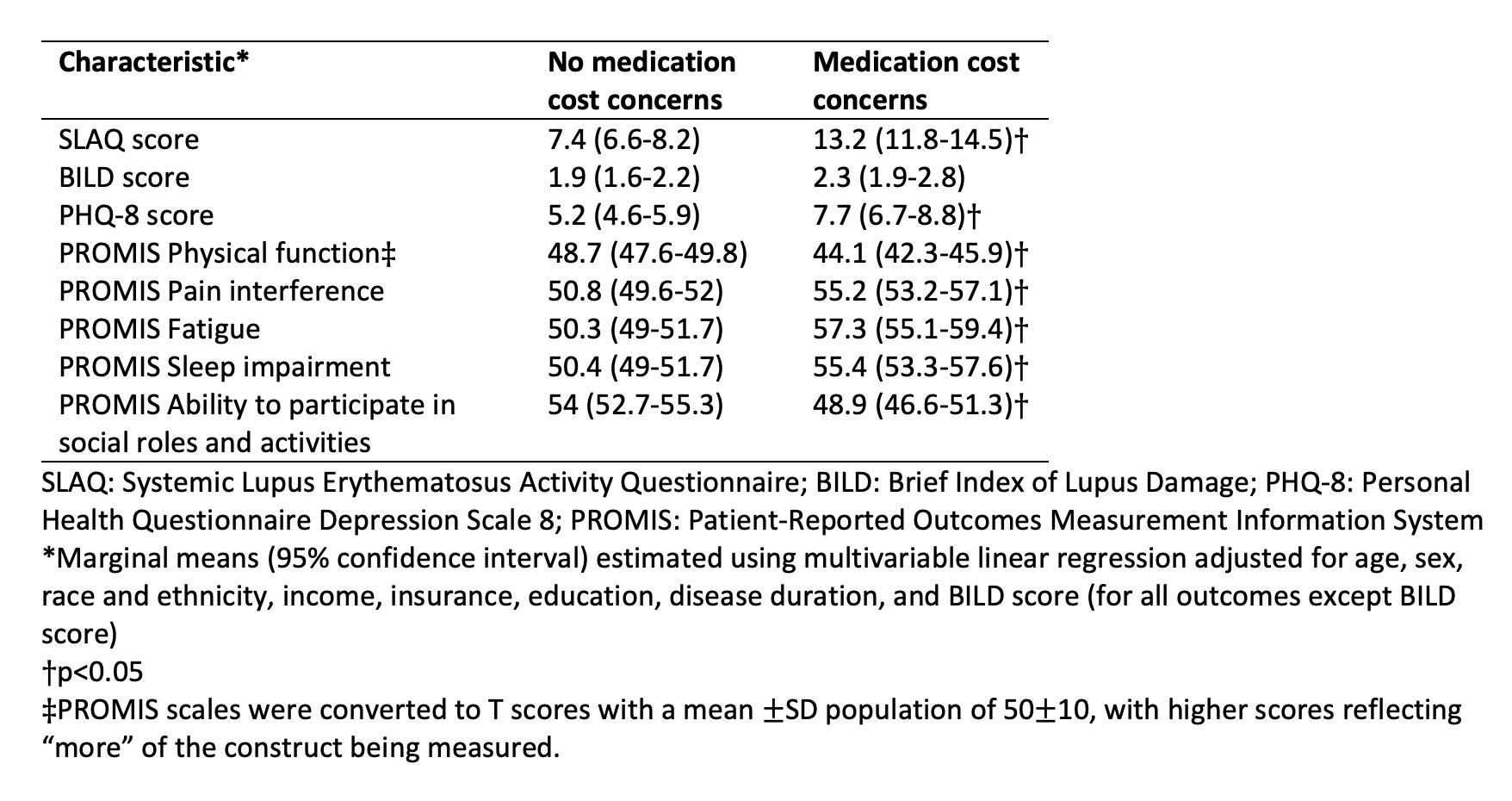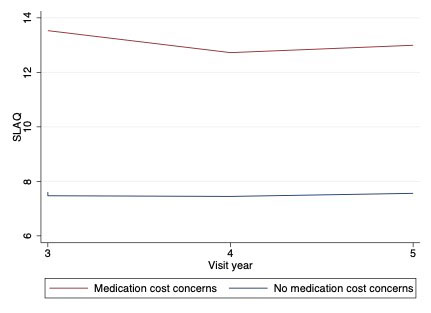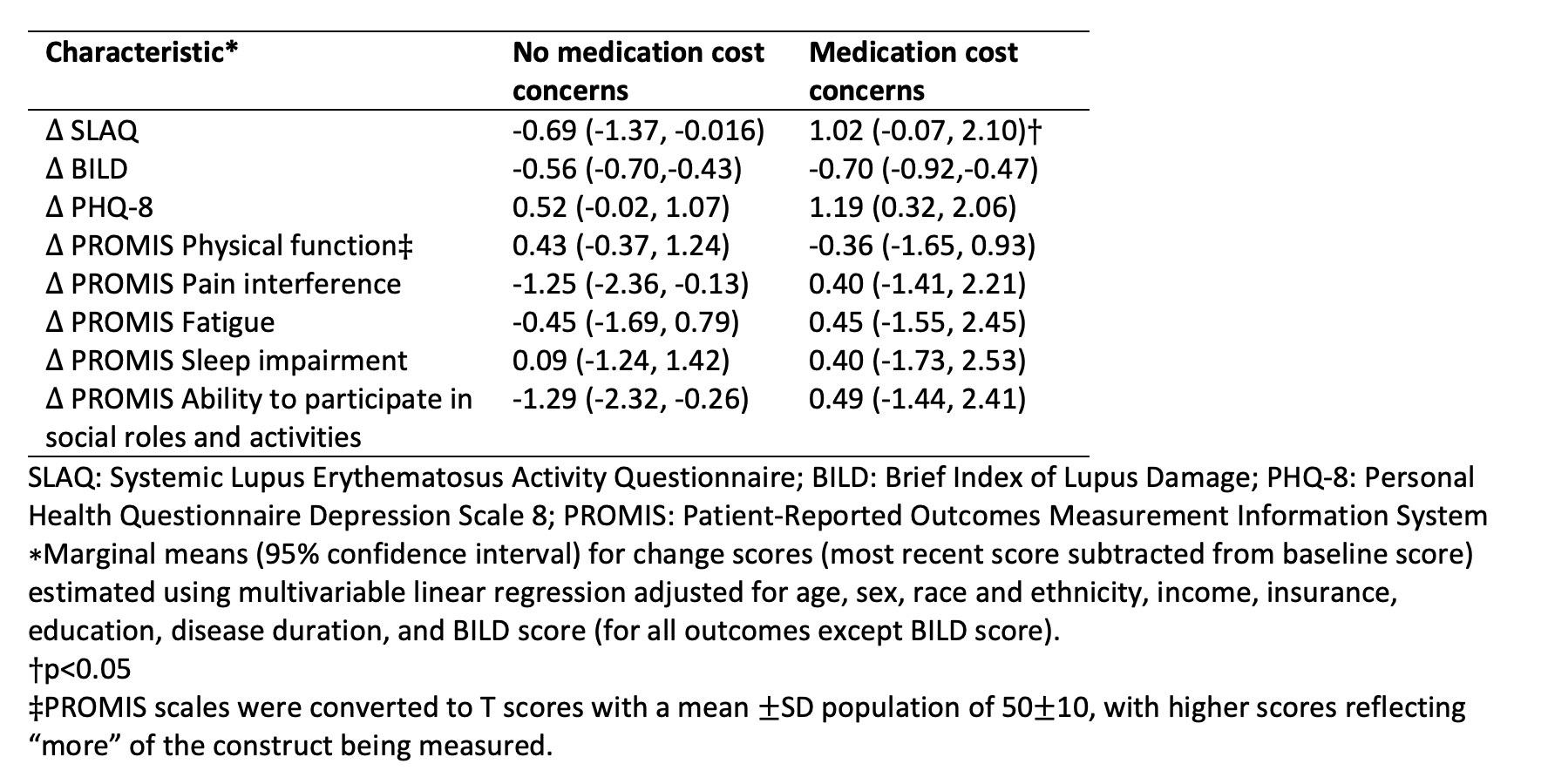Session Information
Date: Monday, November 14, 2022
Title: SLE – Diagnosis, Manifestations, and Outcomes Poster III: Outcomes
Session Type: Poster Session D
Session Time: 1:00PM-3:00PM
Background/Purpose: Medication cost concerns are associated with nonadherence and poor outcomes in the general population. Prior research has described medication cost concerns in up to one-fifth of patients with systemic lupus erythematosus (SLE), but little is known about the relationship between these concerns and relevant health outcomes. In a multiethnic cohort of patients with SLE, we assessed the association of self-reported medication cost concerns and patient-reported outcomes.
Methods: The California Lupus Epidemiology Study (CLUES) is a cohort of patients with physician-confirmed SLE in the San Francisco Bay Area. As part of a yearly structured survey administered by trained interviewers, in 2017-2019, patients were asked several questions about the costs of lupus drug therapy. We classified respondents as having significant SLE-related medication cost concerns if they reported any of the following: requesting lower cost alternatives to prescribed drugs, having difficulties affording medications, skipping doses or delaying refills, purchasing drugs outside the US, or applying for patient assistance programs. We used linear regression models to examine the association of medication cost concerns and patient-reported outcomes in the following domains: disease activity, organ damage, depression, and physical and social health. Models were adjusted for age, sex, race and ethnicity, income, insurance, education, disease duration, and baseline organ damage. Additionally, the longitudinal association of medication cost concerns and change scores for these outcomes was assessed with linear regression, adjusting for the covariates described above.
Results: Of the 341 participants in CLUES, the mean age was 49 years, 91% were female, and 69% reported a non-White race or ethnicity. Medication cost concerns, reported by 93 (27%), were associated with worse patient-reported outcomes after adjustment for covariates (Table 1). Medication cost concerns were not associated with clinically significant changes in patient-reported outcomes over time (Figure 1 and Table 2), suggesting that the observed disparities between those with and without medication cost concerns persisted over time.
Conclusion: More than a quarter of participants in CLUES reported at least one medication cost concern, which was associated at baseline with worse patient-reported outcomes across the domains of disease activity, depression, and physical and social health. These disparities remained remarkably stable over the course of follow-up in this longitudinal cohort. Our results reveal potentially modifiable risk factors for poor outcomes rooted in the unaffordability of lupus care for many people with SLE.
To cite this abstract in AMA style:
Aguirre A, DeQuattro K, Katz P, Greenlund K, Barbour K, Gordon C, M Lanata C, Criswell L, Dall'Era M, Yazdany J. Medication Cost Concerns and Disparities in Patient-reported Outcomes Among a Multiethnic Cohort of Patients with Lupus [abstract]. Arthritis Rheumatol. 2022; 74 (suppl 9). https://acrabstracts.org/abstract/medication-cost-concerns-and-disparities-in-patient-reported-outcomes-among-a-multiethnic-cohort-of-patients-with-lupus/. Accessed .« Back to ACR Convergence 2022
ACR Meeting Abstracts - https://acrabstracts.org/abstract/medication-cost-concerns-and-disparities-in-patient-reported-outcomes-among-a-multiethnic-cohort-of-patients-with-lupus/



